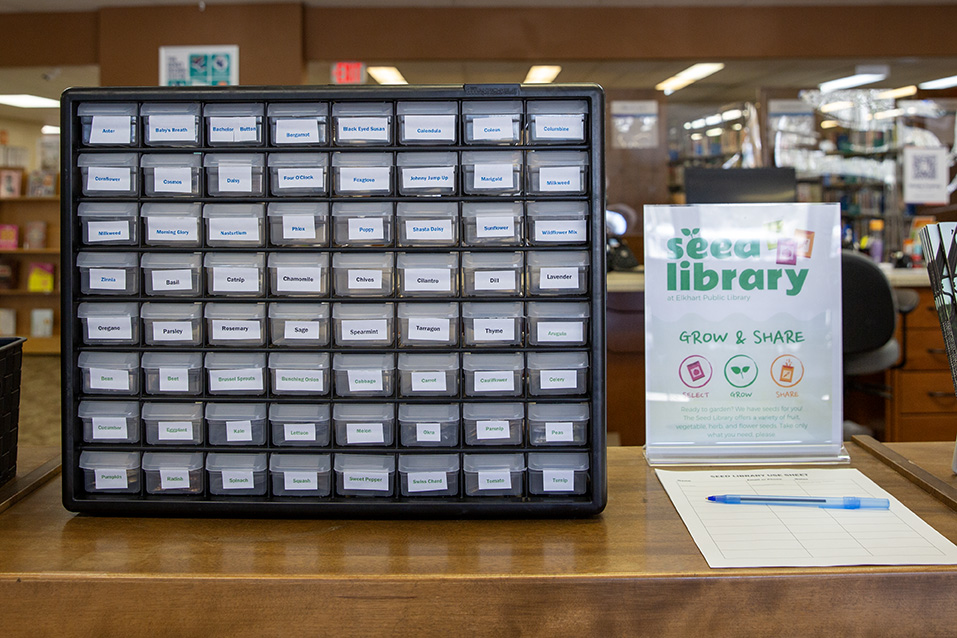Start a garden with EPL’s seed library

Stretching food dollars. Building sustainable communities. Elkhart Public Library’s seed library makes growing fresh herbs and produce easier.
Lindsey Caterina, community wellness coordinator for Purdue Extension Elkhart County, says seed libraries help bridge food insecurity and bring nutrition to home gardeners.
“There’s definitely food deserts around Elkhart County where fresh produce is not available (or) is not of quality,” she says. “A goal is to help people become self-sufficient.
“(Seed libraries) help people be more informed about the food they eat and make better decisions around it,” she says.
When people grow their own vegetables, they save money and eat better at home.
“A package of basil can be $3 for just a little bit at the store. But you could grow an herb garden and use what you need over and over,” Lindsey says. “It’s about going from garden to table.”
Encouraging gardening and offering ways for people to get affordable produce are just some of the reasons EPL staff like Bevin Redding decided to add the seed library.
“Given the rising cost of groceries, a lot of us can use some free fresh food, and growing it ourselves is a good way to get it,” says Bevin.
“Planting from seed is an economical way to do it, especially if you are gathering seed from your plants each year to use the next, or to exchange as part of participating in a seed library,” she says.
Another staff member, Aaron Blue, has happy memories of gardening with his mother. He loves sharing that passion with others.
“The Seed Library that the Elkhart Public Library provides helps everyone experience the joy and satisfaction of gardening for themselves,” says Aaron.
Seed libraries offer other benefits, Lindsey says, such as helping the plants adapt to the local climate and become more resistant to disease and other problems over time. Plus, flowers help support pollinators like bees and butterflies.
“I’m excited for Elkhart Public Library to have one, I think it will build a community around it,” Lindsey says.
Seed packets for vegetables, herbs, fruits and flowers are free to the community at the Downtown library on the second floor. Contact the Reference Department if you have seeds you want to donate to the seed library.
Books on home gardening are nearby to make the most of the seeds. Then, find a cookbook to turn the harvest into a delicious side or main dish.
Seeds will be available throughout the growing season.